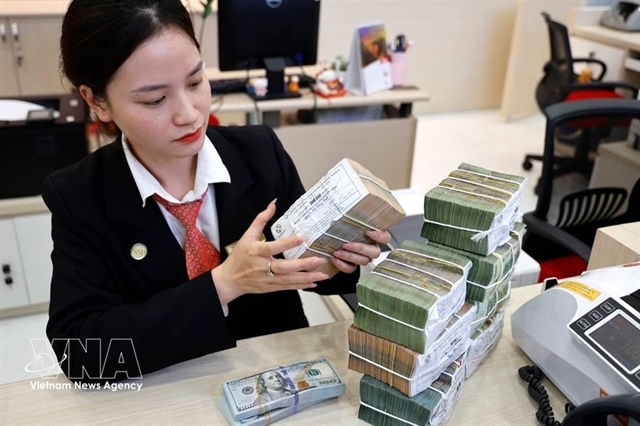Foreign investors eye Viet Nam’s e-wallet market
Foreign investors eye Viet Nam’s e-wallet market
Foreign investors have poured into Viet Nam’s e-wallet sector as they see huge growth potential in the market in the wake of the Government’s plan to reduce cash payments to below 10 per cent of the total payment transaction by 2020.

The State Bank of Viet Nam (SBV) licensed 27 non-bank institutions to provide intermediary payment services by the end of August, of which 20 offered e-wallets, including well-known names such as MoMo, Bankplus, Vi Viet, VTC Pay, WePay, Vimo, Ngan Luong and Payoo.
Most of the institutions have foreign investments, such as South Korea’s UTC Investment holding a 65 per cent stake in VNPT Epay, NTT Data holding 64 per cent in Payoo, Hong Kong’s Champion Crest holding 51 per cent of Amigo Technologies JSC, Thailand’s True Money owing 90 per cent of 1Pay and MOL Accessportal holding 50 per cent of Ngan Luong.
With the foreign investment capital, most e-wallet providers currently offer free or low-cost e-wallets in order to attract users. This explains why the transaction value via e-wallets has increased sharply in the recent time.
Though there is no official report from the SBV about the number of Vietnamese e-wallet users, service providers estimate that 10 million people in Viet Nam are using e-wallets, which is a modest figure compared with the great potential of the market.
Customers are also attracted to the payment method because it allows them to use mobile applications to quickly pay for goods and services in just a few seconds.
Despite the incentive policies of intermediary payment service providers, banks have not yet taken advantage of their potential strengths in e-payment.
Statistics of the Vietnam Card Association shows that there are currently 132 million ATM cards issued by banks. However, experts said that this number does not indicate that banks have been able to dominate the payment market of more than 90 million people, as the number of customers using ATM cards to pay online is even less than the 10 million that use e-wallets.
Banking expert Nguyen Tri Hieu said that similar to bank cards, the fees for e-wallets include fees for annual maintenance, money transfer, withdrawal, online payment, wallet management, transaction confirmation and balance information, which are similar to banks’.
Nevertheless, while banks charge most of these fees, most intermediary payment businesses accept losses in the first phase of operation as part of a long-term business strategy, Hieu said, adding that they had made thorough calculations to grasp the market.
If payment companies are able to attract more users, they could earn bigger benefits than the fees they could collect from services.
When the companies have a certain number of customers, they will then consider charging fees, Hieu said, warning that if banks don’t change their strategy, they will lose their share of the home market.



























